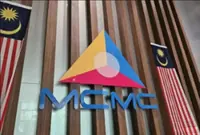KUALA LUMPUR: The Celcom Digi Bhd merger will be the precursor for a better end-user cellular experience will bring a better user experience, says Assoc Prof Dr Leow Chee Yen
He said this is especially so considering the Malaysian Communications and Multimedia Commission (MCMC) goal for the amalgamation of the fifth-generation network (5G) into 80% of Malaysians' lives by 2024.





